Lesson 46 - In the kitchen
In this lesson, you will learn two new particles: de and ni wa. The particle de is almost like "in" or "at" and shows the location of an activity. For example, you could say Boku wa daidokoro de ryouri o shimasu to say "I cook in the kitchen". Ryouri o shimasu is to cook. De is a very easy particle to use. A harder one, ni wa talks about something in a room. For example, if you said Shinshitsu ni wa BEDDO ga arimasu. Arimasu means to exist, just like imasu, but it is used for inanimate objects.
Now that we learned this two new particles, let's launch into a conversation between Yuki and Nobuki.
Nobuki: Yuki-kun, konnichi wa. Kore wa uchi desu ka.
Yuki: Hai! Boku no uchi desu yo. O agari kudasai ne.
Nobuki: Hai... hiroi desu ne.
Yuki: Iie... taihen semai desu. Kore wa ima desu. Ima de nemasu.
Nobuki: Ima ni wa futon ga arimasu ka.
Yuki: Hai. Oya wa shinshitsu de nemasu. Shinshitsu ni wa BEDDO ga arimasu.
Nobuki: Omoshiroi ne. Itsumo ima de nemasu ka.
Yuki: Futsuu ima de nemasu.
Nobuki: Ima de nani mo shimasu ka.
Yuki: TEREBI o mimasu. Daidokoro de bangohan o tabemasu. Daidokoro wa gochagocha desu ne.
Nobuki: Sou desu ne. Daidokoro ni wa reizouko ga arimasu ka.
Yuki: Hai. Benri desu ne.
Nobuki: Sou. Daidokoro ni wa nani ga arimasu ka.
Yuki: Daidokoro ni wa sara to NAIFU to FOOKU to chawan to takusan no mono ga arimasu.
Nobuki: Sou desu ne. Ima ni wa honbako ga arimasu ka.
Yuki: Eeto... iie. Imouto no shinshitsu ni wa honbako ga arimasu. Ningyou mo arimasu ne.
Nobuki: Omoshiroi. Ja, yoru desu. Ja mata ne.
Yuki: Hai! Ja mata, Nobuki-kun.
Let's look at this. Nobuki asks Yuki if this is his house. Yuki replies that it is, and invites him inside. Nobuki comments that it is spacious but Yuki replies, "No, it is very cramped. This is the living room. I sleep in the living room." Nobuki asks him if he has a futon and Yuki replies that he does. He says his parents, or oya, sleep in a bedroom. Nemasu is to lie down or go to bed. He says that in their bedroom, there is a bed. Nobuki comments that it is interesting, or omoshiroi. He then asks if he always sleeps in the living room. Yuki says he usually, or futsuu, sleeps there. Nobuki then asks what else he does in the living room. Yuki replies, "I watch TV. In the kitchen, I eat dinner." Bangohan is dinner. Alternately, asagohan is breakfast and hirugohan is lunch. He then continues to say that his kitchen is gochagocha, or messy. Nobuki asks if there is a refrigerator in there. Yuki replies, "Yes. It's convenient, isn't it?" Benri is convenient. Nobuki asks what else is in his kitchen. Yuki replies, "In the kitchen, there are plates (sara), knives (NAIFU), forks (FOOKU), and many other things (takusan no mono)." Nobuki asks if there is a bookcase, or honbako, in the living room. Yuki replies, "No, the bookcase is in my younger sister's bedroom. There is also a doll."Ningyou is doll. Nobuki replies, "Interesting. Well, it's night. I'll see you agan."
A few extra things to learn. POSUTAA is poster and daisuki is "like a lot". Conversely, daikirai is "hate a lot". Sou shimashou is a way of saying, "Let's do that". Lastly, youfuku is Western clothes. The verbaraimasu means to wash (not to clean, which is souji shimasu).
Vocabulary Review
で De- particle for showing the location of an activity
には Ni wa- particle using to show what's in a location
料理をします Ryouri o shimasu- to cook
あります Arimasu- to exist (inanimate objects)
親 Oya- parents
寝ます Nemasu- to lie down/go to bed
面白い Omoshiroi- interesting
普通 Futsuu- usually
晩ご飯 Bangohan- dinner
朝ご飯 Asagohan- breakfast
昼ご飯 Hirugohan- lunch
ごちゃごちゃ Gochagocha- messy
便利 Benri- convenient
皿 Sara- plates
ナイフ NAIFU- knives
フォーク FOOKU- forks
たくさんのもの Takusan no mono- lots of things
本箱 Honbako- bookcase
人形 Ningyou- doll
ポスター POSUTAA- poster
大好き Daisuki- like a lot
大嫌い Daikirai- hate a lot
そうしましょう Sou shimashou- Let's do that
洋服 Youfuku- Western clothes
洗います Araimasu- to wash
